In the dynamic world of heavy transportation, the versatility and reliability of semi-trailers play a pivotal role in ensuring seamless operations. Among the various types of trailers available, lowboy trailers stand out for their unique design and functionality. At CarMax Vehicle, we specialize in manufacturing a diverse range of lowboy trailers tailored to meet the specific needs of our clients. This comprehensive guide delves into the different types of lowboy trailers, their distinct features, applications, and the advantages they offer, helping you make informed decisions for your transportation requirements.
Introduction to Lowboy Trailers
Lowboy trailers, also known as low-loader trailers, are specialized flatbed trailers designed with a lower deck height. This configuration allows for the transportation of oversized and heavy loads that would otherwise be challenging to maneuver on standard trailers. The reduced deck height ensures a lower center of gravity, enhancing stability and safety during transit.
Key Features of Lowboy Trailers
- Lower Deck Height: Facilitates the transport of tall and heavy machinery without exceeding height restrictions.
- Extended Lengths: Accommodates oversized equipment such as construction machinery, agricultural equipment, and industrial machinery.
- Reinforced Frames: Designed to bear substantial weight, often exceeding 100,000 pounds.
- Adjustable Gooseneck: Provides flexibility in loading and unloading heavy equipment.
- Stabilizer Systems: Ensures stability during transit, minimizing the risk of accidents.
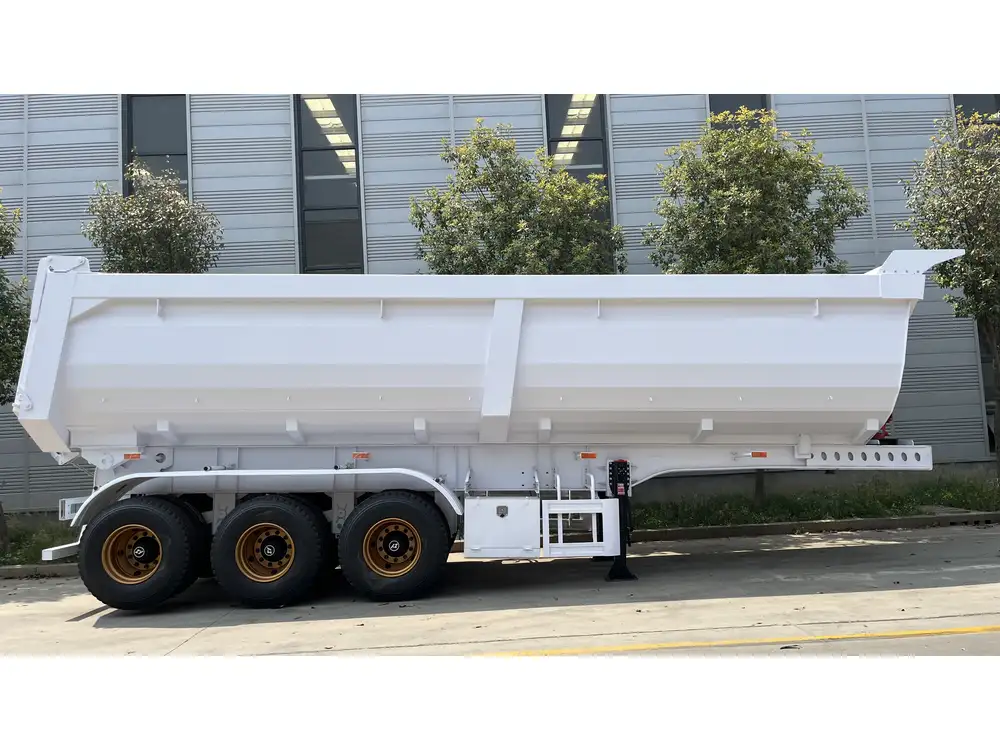
Types of Lowboy Trailers
Lowboy trailers come in various configurations, each tailored to specific transportation needs. Understanding the differences between these types is crucial for selecting the right trailer for your operations.
1. Standard Lowboy Trailers
Standard lowboy trailers are the most commonly used type, characterized by their fixed deck height and uniform platform. They are versatile and suitable for transporting a wide range of heavy equipment.
Features:
- Fixed deck height, typically between 12 to 20 inches.
- Single or tandem axles.
- Adjustable ramps for easier loading and unloading.
- Ideal for general heavy haulage.
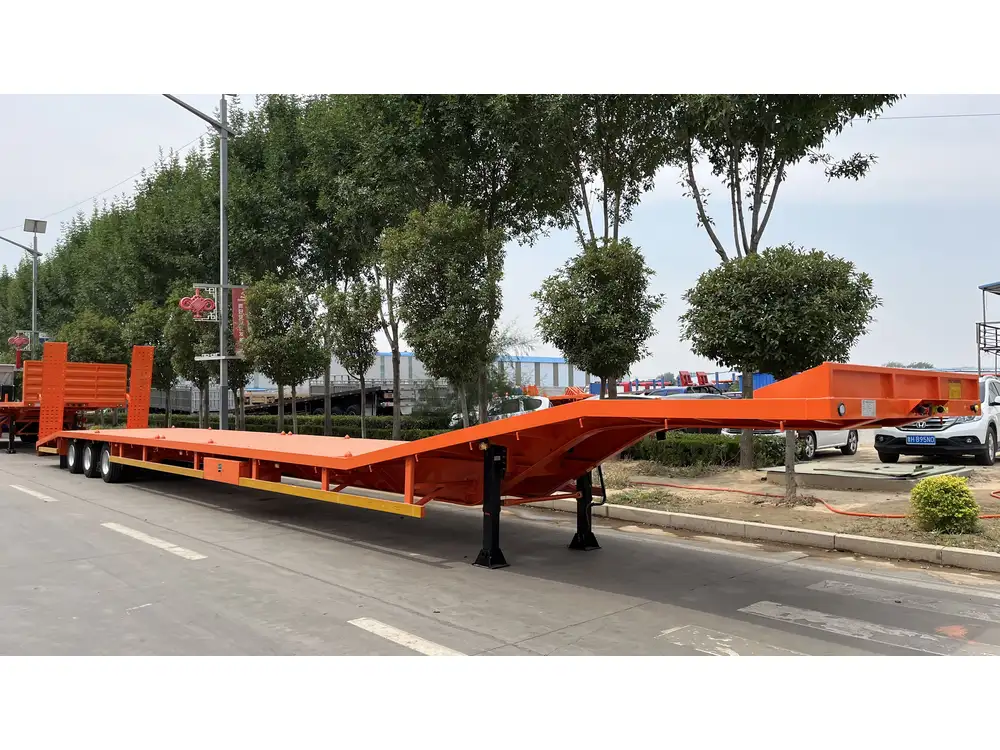
Applications:
- Construction machinery
- Agricultural equipment
- Industrial generators
2. Double Drop Lowboy Trailers
Double drop lowboy trailers feature an additional drop in deck height, allowing for even lower overall height. This design is particularly beneficial for transporting exceptionally tall machinery without exceeding legal height limits.
Features:
- Two drops in deck height.
- Enhanced stability for tall loads.
- Increased maneuverability in urban settings.
- Often equipped with extendable ramps.

Applications:
- Wind turbine components
- Large-scale mining equipment
- Oversized industrial machinery
3. Extendable Lowboy Trailers
Extendable lowboy trailers are designed with adjustable platforms that can be extended to accommodate varying load sizes. This adaptability makes them ideal for transporting equipment of different dimensions.
Features:
- Telescopic or sliding sections.
- Adjustable length to fit specific load requirements.
- Flexible loading and unloading processes.
- Enhanced cargo capacity.

Applications:
- Modular industrial units
- Multi-piece construction machinery
- Custom-built heavy equipment
4. Ramp Lowboy Trailers
Ramp lowboy trailers incorporate built-in ramps that facilitate the easier loading and unloading of heavy equipment. These ramps can be fixed or hydraulic, providing versatility in handling different types of machinery.
Features:
- Integrated loading ramps.
- Hydraulic or manual ramp operation.
- Increased safety during loading/unloading.
- Suitable for various load weights and sizes.

Applications:
- Military equipment transportation
- Emergency response machinery
- Heavy-duty construction tools
5. Forestry Lowboy Trailers
Forestry lowboy trailers are specifically designed to transport heavy logging equipment and forestry machinery. They often feature reinforced frames and specialized anchoring systems to secure bulky loads.
Features:
- Reinforced chassis for extra strength.
- Specialized tie-down points.
- Enhanced protection against environmental factors.
- Customized loading platforms.

Applications:
- Logging harvesters
- Forwarders and skidders
- Lumber processing equipment
6. Aluminum Lowboy Trailers
Aluminum lowboy trailers offer a lightweight alternative to traditional steel trailers without compromising on strength. They are ideal for industries where weight reduction is critical, such as aerospace and high-tech manufacturing.
Features:
- Lightweight aluminum frames.
- Corrosion-resistant surfaces.
- Reduced overall trailer weight.
- Fuel-efficient transportation.

Applications:
- Aerospace components
- High-value manufacturing equipment
- Precision machinery
Comparative Analysis of Lowboy Trailer Types
To better understand the distinctions between the various lowboy trailer types, the following table presents a comparative analysis based on key attributes:
| Trailer Type | Deck Height | Load Capacity | Adjustable Features | Primary Applications |
|---|---|---|---|---|
| Standard Lowboy | 12-20 inches | Up to 100,000 lbs | Ramps, gooseneck adjustment | General heavy haulage |
| Double Drop Lowboy | Lower than standard | Up to 120,000 lbs | Dual deck height, extendable ramps | Wind turbines, mining equipment |
| Extendable Lowboy | Varies | Up to 110,000 lbs | Telescopic sections | Modular industrial units, custom machinery |
| Ramp Lowboy | 15 inches | Up to 105,000 lbs | Hydraulic ramps | Military and emergency equipment |
| Forestry Lowboy | 10 inches | Up to 95,000 lbs | Specialized anchoring | Logging and forestry machinery |
| Aluminum Lowboy | 12 inches | Up to 90,000 lbs | N/A | Aerospace, high-tech manufacturing |
Choosing the Right Lowboy Trailer for Your Needs
Selecting the appropriate lowboy trailer involves evaluating several factors to ensure optimal performance and compliance with transportation regulations. Here’s a step-by-step guide to help you make an informed decision:
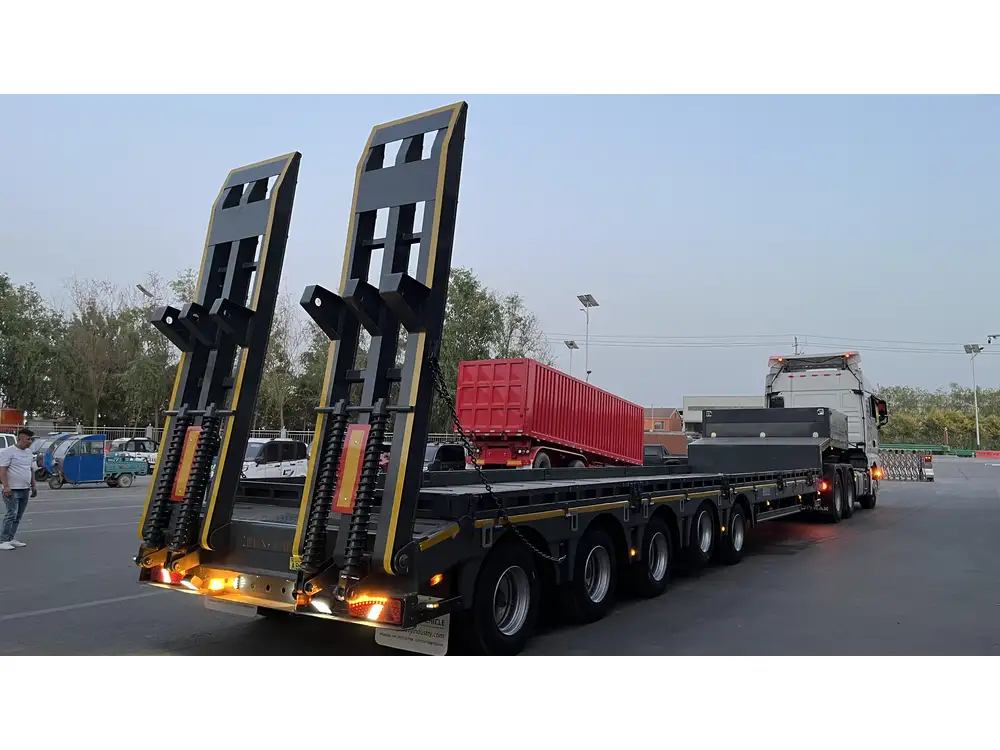
1. Assess Your Load Requirements
- Weight: Determine the total weight of the equipment you intend to transport.
- Dimensions: Measure the height, length, and width of your machinery to ensure it fits within the trailer’s capacity.
- Center of Gravity: Consider the load’s balance to maintain trailer stability.
2. Evaluate Terrain and Route
- Road Conditions: Identify whether the transportation route includes urban areas, rough terrains, or highways.
- Height Restrictions: Be aware of any height restrictions on bridges or tunnels along the route.
- Turn Radius: Ensure the trailer can navigate sharp turns if the route demands it.
3. Consider Flexibility and Adaptability
- Adjustable Features: Trailers with adjustable decks or extendable platforms offer greater flexibility for varying load sizes.
- Modularity: Modular designs allow for quick reconfiguration based on different transportation needs.

4. Prioritize Safety Features
- Stabilization Systems: Essential for maintaining trailer stability during transit.
- Secure Tie-down Points: Ensure the trailer has adequate points to securely fasten the load.
- Lighting and Signage: Compliance with safety regulations regarding trailer lighting and signage.
5. Analyze Cost and Maintenance
- Initial Investment: Compare the cost of different trailer types based on their features and build quality.
- Maintenance Requirements: Consider the ease of maintenance and availability of spare parts.
- Operational Costs: Factor in fuel efficiency, especially for heavier or longer trailers.
Advantages of Lowboy Trailers
Lowboy trailers offer numerous benefits that make them a preferred choice for transporting heavy and oversized loads:

Enhanced Stability
The lower deck height ensures a lower center of gravity, significantly improving trailer stability and reducing the risk of tipping, especially when carrying tall or heavy equipment.
Versatility
With various configurations available, lowboy trailers can be customized to accommodate a wide range of machinery, from construction equipment to industrial generators.
Compliance with Regulations
Lowboy trailers are designed to keep the load height within legal limits, ensuring compliance with transportation laws and minimizing the risk of fines or delays.
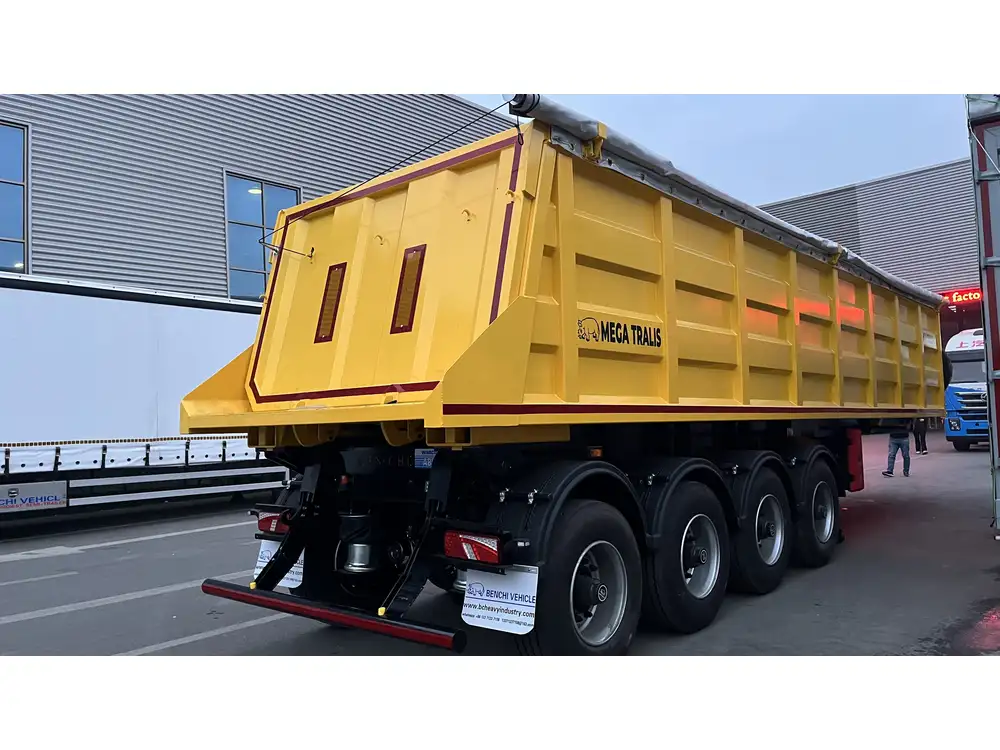
Improved Safety
Features like adjustable ramps, reinforced frames, and stabilization systems contribute to safer loading, unloading, and transit operations.
Cost-Effectiveness
By reducing the need for multiple trailer types, businesses can optimize their fleets, leading to cost savings in the long run.
Applications Across Industries
Lowboy trailers are indispensable across various industries due to their ability to transport large and heavy equipment efficiently. Here’s how different sectors utilize lowboy trailers:

Construction Industry
The construction sector relies heavily on lowboy trailers to transport machinery such as bulldozers, excavators, cranes, and concrete mixers. The versatility and heavy load capacity of lowboy trailers ensure that essential equipment reaches construction sites safely and on time.
Agriculture
In agriculture, lowboy trailers are used to haul tractors, harvesters, and other farming equipment. The trailers’ ability to handle uneven terrains and heavy loads makes them ideal for transporting equipment between farms and processing facilities.
Energy and Utilities
The energy sector, including wind and solar power installations, uses lowboy trailers to transport turbines, generators, and other large components. The double drop and extendable lowboy configurations are particularly useful for handling oversized energy equipment.

Forestry
Forestry operations depend on lowboy trailers to move logging machinery, forwarders, and skidders. The reinforced frames and specialized anchoring systems of forestry lowboy trailers ensure that heavy timber equipment is transported securely through rugged terrains.
Industrial Manufacturing
Manufacturers utilize lowboy trailers to transport industrial machinery, assembly line components, and heavy-duty equipment. The precise loading and secure fastening features of lowboy trailers facilitate the safe and efficient movement of valuable industrial assets.
Customization Options with CarMax Trailer
At CarMax Trailer, we understand that each client has unique transportation needs. Therefore, we offer a range of customization options to ensure our lowboy trailers meet your specific requirements:
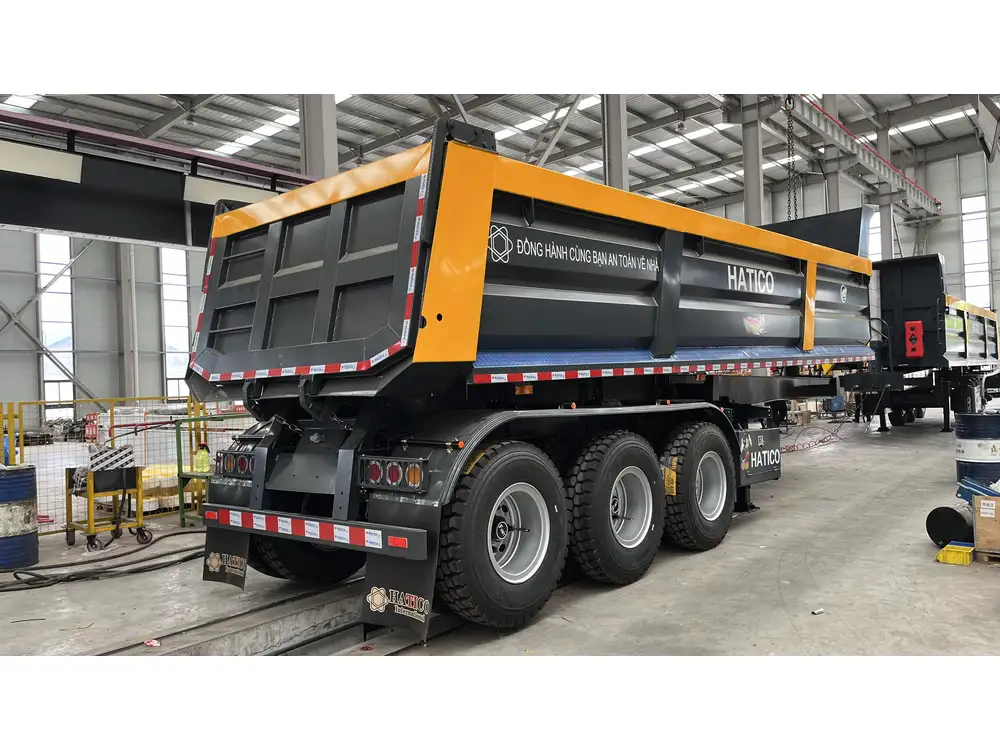
Adjustable Deck Heights
Our lowboy trailers come with adjustable deck heights, allowing you to accommodate varying load sizes without exceeding legal height limitations.
Reinforced Structural Frames
We offer trailers with reinforced frames to handle exceptionally heavy loads, ensuring durability and longevity even under demanding conditions.
Specialized Ramps and Goosenecks
Customize your trailer with specialized ramps and gooseneck configurations for easier loading and unloading of heavy machinery.

Modular Extensions
Our extendable lowboy trailers feature modular extensions that can be configured based on the length and type of equipment being transported, providing maximum flexibility.
Advanced Safety Features
Enhance your trailer with advanced safety features such as automated stabilization systems, enhanced lighting, and secure anchoring points to ensure compliance with safety regulations.
Maintenance and Care for Lowboy Trailers
Proper maintenance is crucial to ensure the longevity and optimal performance of your lowboy trailer. Here are some essential maintenance practices:
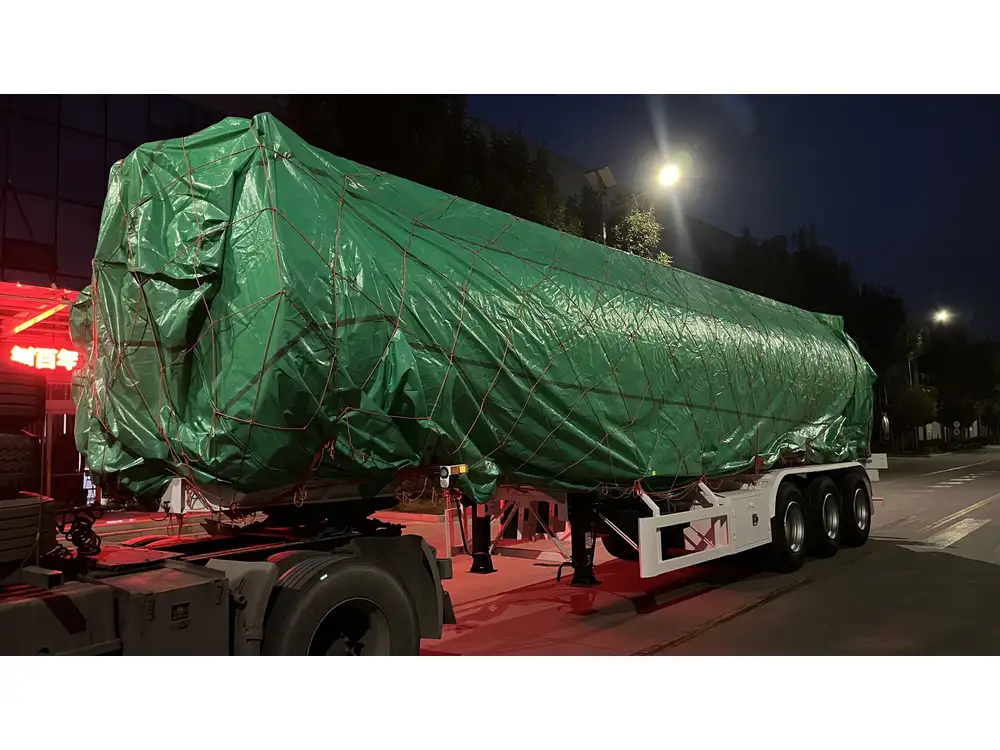
Regular Inspections
Conduct routine inspections of the trailer’s structural components, including the frame, axles, and suspension system, to identify and address any signs of wear or damage.
Lubrication
Keep all moving parts, such as adjustable ramps and extendable sections, well-lubricated to prevent corrosion and ensure smooth operation.
Tire Maintenance
Monitor tire pressure and tread condition regularly. Replace tires as needed to maintain stability and safety during transit.

Brake System Checks
Ensure that the brake system is functioning correctly by performing regular checks and servicing. This includes inspecting brake pads, lines, and controllers.
Cleaning and Storage
Clean the trailer after each use to prevent the buildup of dirt and debris that can cause corrosion. Store the trailer in a dry, sheltered area to protect it from the elements.
Future Trends in Lowboy Trailer Design
The transportation industry is continually evolving, and lowboy trailer designs are adapting to meet emerging demands. Here are some future trends to watch:
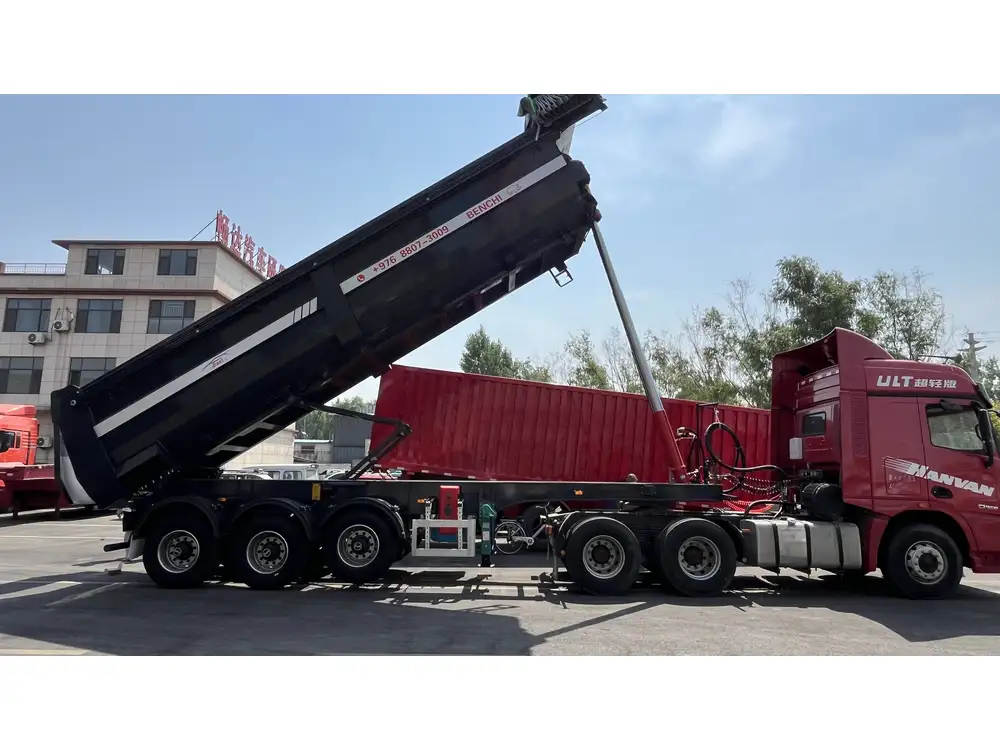
Automation and Smart Technology
Integration of smart technology, such as GPS tracking, automated load balancing, and real-time performance monitoring, to enhance efficiency and safety.
Lightweight Materials
Advancements in materials science are leading to the development of lighter yet stronger trailer frames, improving fuel efficiency and payload capacity.
Sustainable Manufacturing
A growing emphasis on eco-friendly manufacturing processes and the use of recyclable materials to reduce the environmental impact of trailer production.
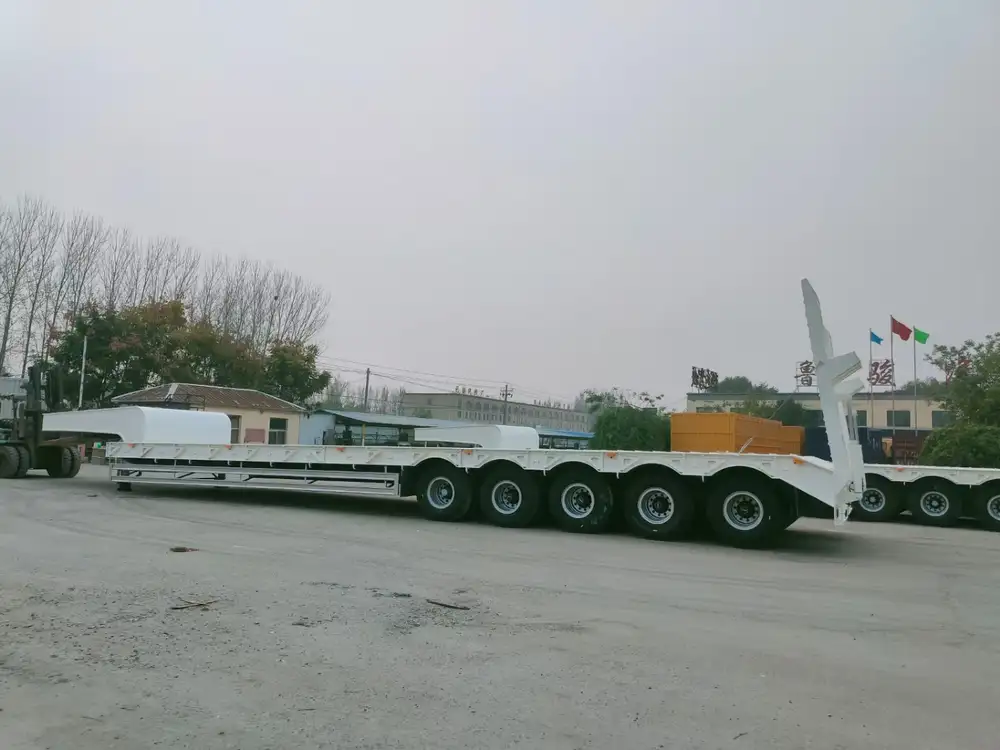
Enhanced Aerodynamics
Design improvements aimed at reducing air resistance, thereby increasing fuel efficiency and lowering transportation costs.
Modular and Multi-Functional Designs
Development of more modular trailer structures that can be easily reconfigured for different types of loads, providing greater versatility for diverse transportation needs.
Why Choose CarMax Vehicle for Your Lowboy Trailer Needs
At CarMax Vehicle, we pride ourselves on delivering high-quality lowboy trailers that cater to the specific needs of our clients. Our commitment to excellence is reflected in every aspect of our manufacturing process:

Expertise and Experience
With years of experience in the trailer manufacturing industry, our team possesses the knowledge and skills to design and produce trailers that meet the highest standards of quality and performance.
Customized Solutions
We understand that each client has unique requirements. Our customizable lowboy trailers ensure that you get a solution tailored to your specific transportation needs.
Superior Quality
We use only the finest materials and adhere to strict quality control measures to ensure that our trailers are durable, reliable, and built to last.

Exceptional Customer Support
Our dedicated customer support team is always available to assist you with any inquiries, provide technical support, and ensure that your experience with us is seamless and satisfactory.
Competitive Pricing
We offer premium lowboy trailers at competitive prices, ensuring that you receive the best value for your investment without compromising on quality.
Conclusion
Lowboy trailers are indispensable tools in the realm of heavy and oversized transportation. Their unique design, combined with various configurations, makes them ideal for a wide array of applications across multiple industries. At CarMax Vehicle, we are dedicated to providing top-of-the-line lowboy trailers that enhance your operational efficiency, ensure safety, and comply with all regulatory standards. Whether you require a standard lowboy, double drop, extendable, or any specialized configuration, our expertise and commitment to quality ensure that you receive a trailer that perfectly aligns with your needs.

Frequently Asked Questions
1. What is the primary advantage of using a lowboy trailer over a standard flatbed trailer?
Lowboy trailers have a lower deck height, which allows for the transportation of taller and heavier equipment without exceeding height restrictions. This design enhances stability and reduces the risk of tipping during transit.
2. Can lowboy trailers be customized to fit specific equipment sizes?
Yes, at CarMax Trailer, we offer customizable lowboy trailers with adjustable deck heights, extendable platforms, and specialized features to accommodate various equipment sizes and transportation requirements.
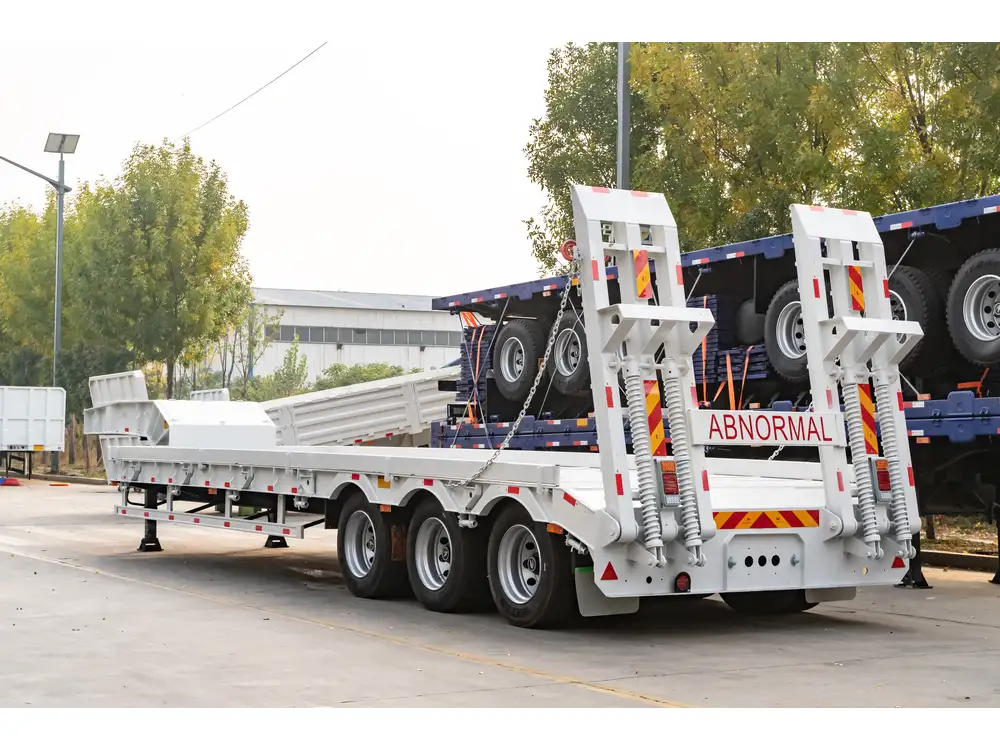
3. What industries benefit the most from lowboy trailers?
Industries such as construction, agriculture, energy, forestry, and industrial manufacturing heavily rely on lowboy trailers for transporting heavy and oversized machinery due to their versatility and high load capacity.
4. How do double drop lowboy trailers differ from standard lowboy trailers?
Double drop lowboy trailers feature an additional drop in deck height, allowing them to transport exceptionally tall machinery while maintaining a lower center of gravity for enhanced stability compared to standard lowboy trailers.
5. What maintenance practices are essential for ensuring the longevity of a lowboy trailer?
Regular inspections, proper lubrication of moving parts, tire maintenance, brake system checks, and thorough cleaning and storage are essential practices to maintain the longevity and optimal performance of a lowboy trailer.



